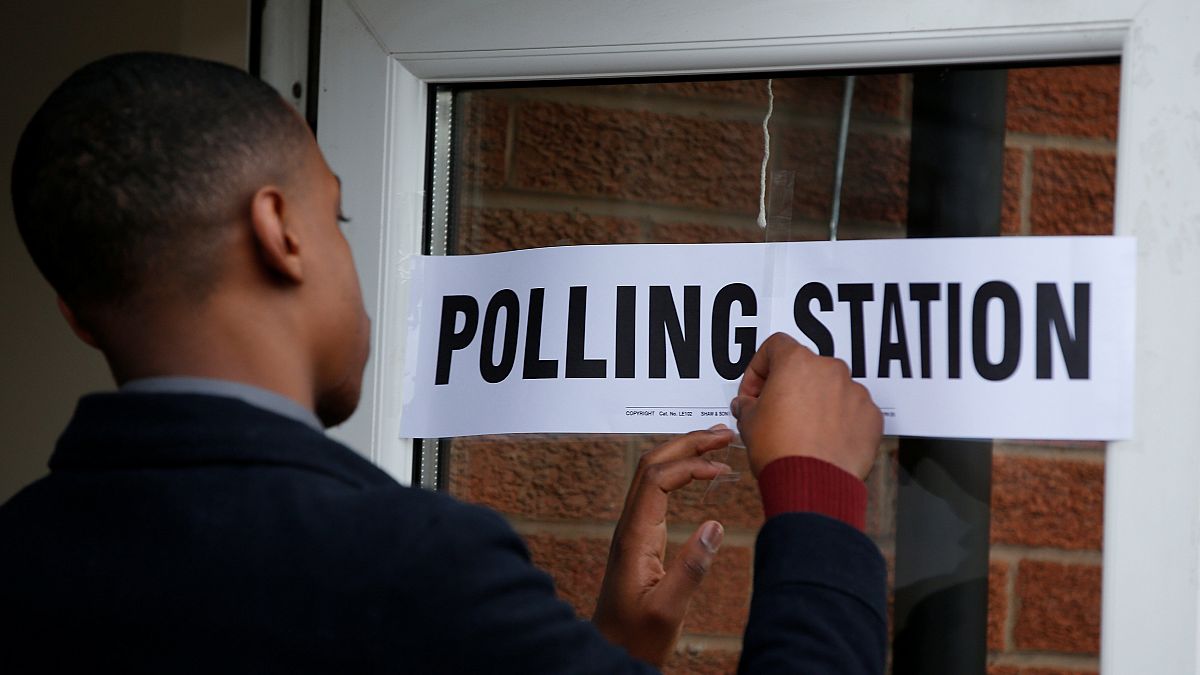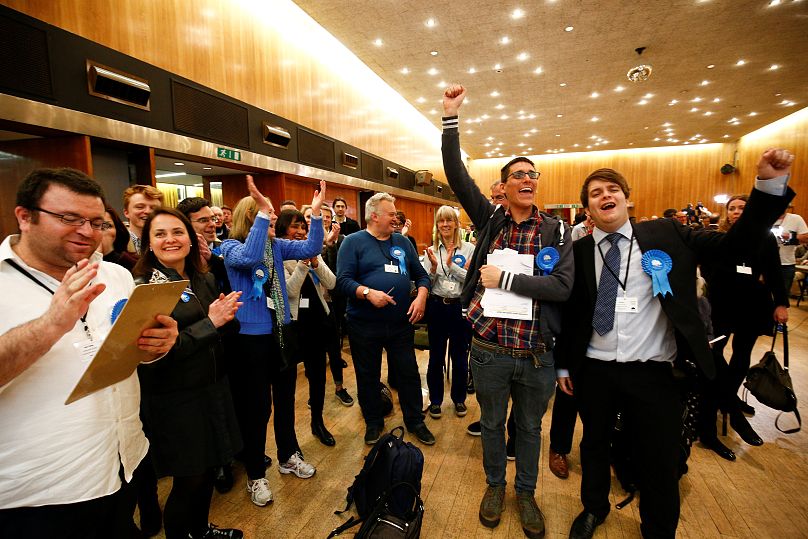Thursday's local elections across England saw a mixed night for the main parties, with the opposition Labour Party failing to make major headway against the ruling Conservatives.
Elections took place in 150 of England’s 353 local councils on Thursday. More than 4,000 seats were contested. Local government authorities are responsible for local public services. However, the results are seen as a major test of the national mood.
What happened?
Partial results show a mixed picture for all the main parties, giving a similar situation to that of the 2017 general election. The ruling Conservatives did not suffer the major losses that some had predicted.
The Tories managed to keep Labour at bay in London, where the opposition party had targeted several key boroughs. They kept Wandsworth in south London – seen as a symbol of the Thatcher era for its low tax-policies – and won two other boroughs in the capital (Barnet and Hillingdon). They also held on to Kensington and Chelsea, despite heavy criticism over the Grenfell Tower disaster.
Labour did achieve a swing towards the party in the capital, but not enough to inflict heavy losses on the Conservatives. Outside London they won Plymouth in southwest England, as well as Trafford in Greater Manchester – and their share of the vote increased in many areas.
There was success too for the Conservatives outside the capital, where the anti-EU UKIP Party’s vote collapsed. The Tories also took several seats from Labour in the Midlands.
The pro-EU Liberal Democrats, who did badly in the 2017 general election, made gains in several areas, winning Richmond near London from the Conservatives. The Greens won an average of 7% of the vote in seats they contested.
More results are due throughout Friday.
What do the results tell us?
The partial results appear to show no decisive overall victory or defeat for any party. The Conservatives may be relieved that after eight years in government, and amid much turmoil over Brexit, that they did not do worse.
The moderate success for the Conservatives outside London came largely at the expense of UKIP. The anti-EU party, which has suffered a major decline since playing a major role in the vote to leave the union at the 2016 EU referendum, was all but wiped out – although it did not field candidates in many seats.
Theresa May’s government could find encouragement that despite much criticism and turmoil over its Brexit policy, it managed to attract many pro-Leave voters who did not swing in massive numbers for Labour.
The opposition Labour Party are celebrating victory in Plymouth – where the campaign was dominated by a row over defence cuts. However, they may be disappointed that they did not make more gains and especially in London, where they had been hoping to sweep the Tories away.
Commentators are saying that Labour suffered from a row over anti-Semitism, which leader Jeremy Corbyn has been accused of not doing enough to stamp out in the party. They failed to win Barnet in London, and lost Salford in Greater Manchester – both areas have a high proportion of Jewish voters.
Labour did perform better in areas which voted in favour of remaining in the EU, as did the Liberal Democrats. However, the UK’s main opposition party appears to have failed to continue the momentum it gained at last year’s general election.
What does it mean for the Conservative government and Brexit?
The last general election in 2017 returned a hung parliament with no overall majority for any party. Thursday’s local election results suggest no change if replicated on a national scale – however, the circumstances are always different.
Theresa May’s government has been buffeted by Brexit, with the cabinet and Conservative Party in Parliament bitterly divided over policy on crucial matters such as future trade with the EU. The prime minister has also been personally implicated by opponents in the Windrush scandal, which has seen many long-term immigrants deprived of rights. Yet the evidence suggests these potentially negative factors did not cause the damage they might have done.
Indeed, the government could be encouraged that there was no massive swing to Labour – which says it would implement Brexit, albeit remaining in the single market and form a customs union with the EU – or the anti-Brexit Liberal Democrats. The local elections saw the collapse of an anti-EU party (UKIP), but that doesn’t mean there was a collapse in the anti-EU vote.
The lack of success in major cities will be a concern to the Conservatives. But overall, although May herself has been under attack from all sides both within and outside her party, the prime minister is unlikely to face increased pressure on her position – at least from these election results.
How have they reacted?
“I think it’s been a good night for us and it’s been a dreadful night for Labour” – Brandon Lewis, Conservative Party Chairman.
“The mission of Labour is always to stand up for a decent society and against poverty… That means local government must be properly funded by central government” – Labour leader Jeremy Corbyn.
“We should be doing much, much better… We clearly need to learn the lessons of the national picture… The party certainly will need to reflect” – former Labour Culture Secretary Ben Bradshaw.
“People are desperate for a voice that isn’t a right-wing Tory Brexit voice or a left-wing Corbynista” – Liberal Democrats’ home affairs spokesman Sir Ed Davey.
“If UKIP does crumble I think you could still arguably make the case that’s it’s been one of the most successful political parties in history” – UKIP former deputy chairwoman Suzanne Evans.
‘These results are as good as any government party after eight years in power could expect” – Tony Travers, professor at the London School of Economics Department of Government.
“Before the Tories get too smug it’s worth remembering what happened last summer. Labour was pummeled in the May 2017 local election, just weeks before their big general election gains” – Jim Pickard, Financial Times Chief Political Correspondent.

